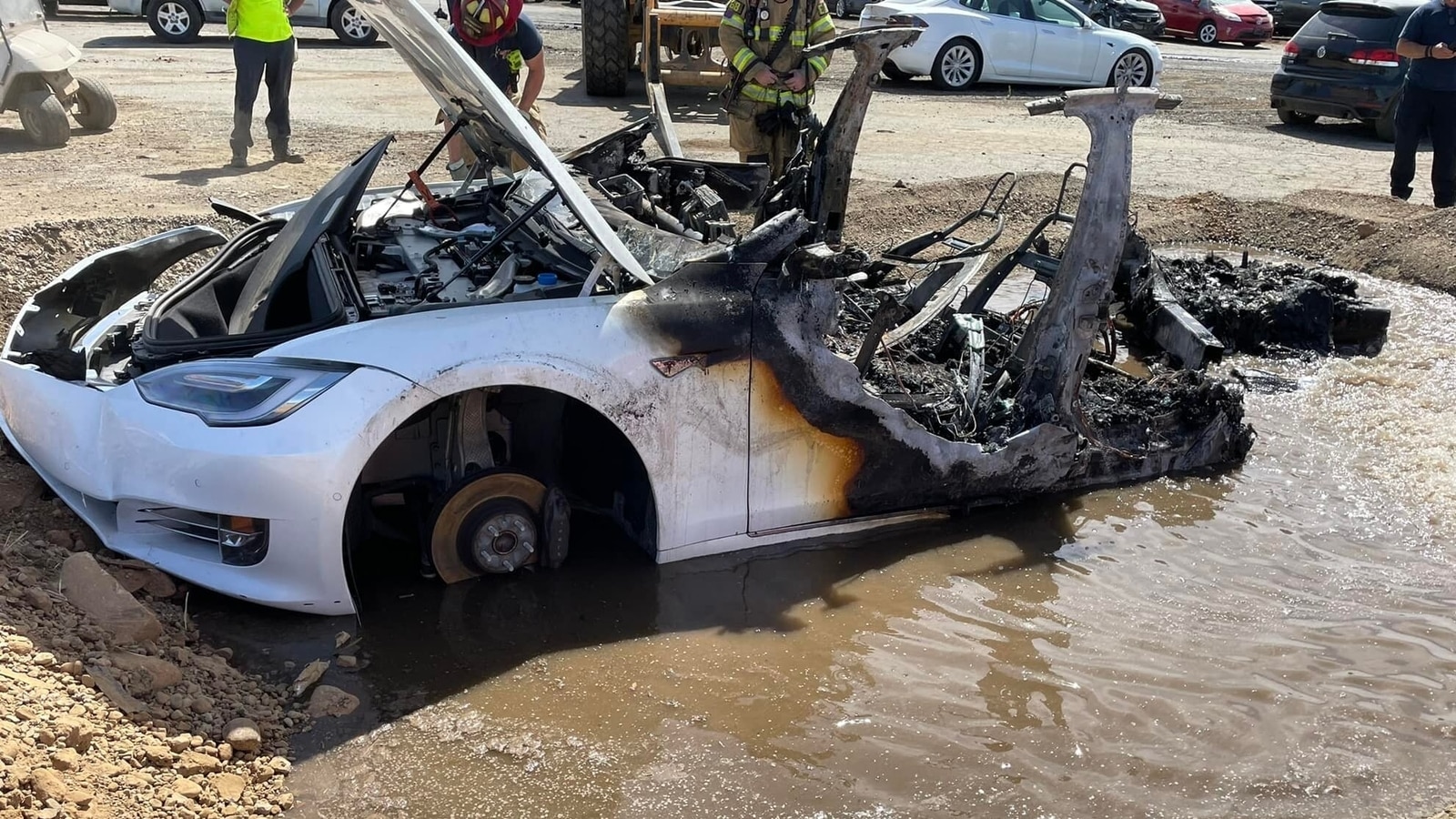Tesla Crash Victim Was 99% to Blame for His Death in Model S, Jury Says
A jury found Tesla Inc. just 1% responsible for the death of a teenager who crashed a Model S into a wall at high speed, concluding that the 18-year-old and his father were 99% to blame for the 2018 accident.
A jury found Tesla Inc. just 1% responsible for the death of a teenager who crashed a Model S into a wall at high speed, concluding that the 18-year-old and his father were 99% to blame for the 2018 accident.
The verdict Tuesday in federal court in Fort Lauderdale, Florida, follows the first trial the electric car-maker faced over a fatal accident involving one its electric cars.
The family of Barrett Riley sought to prove the company played a role in his death when service technicians removed a speed-limiting feature from the Model S that they had previously installed at the request of his mother.
Barrett and his friend sitting in the passenger seat, also 18, were killed when he lost control of the vehicle at 116 miles per hour (187 kph) and crashed into a concrete wall of a Fort Lauderdale house in 2018.
A claim that a defect in the car’s battery caused it to explode in flames at the crash scene was dismissed before the trial started.
Tesla faces a spate of lawsuits and regulatory probes over accidents linked to its Autopilot driver assistance feature. The first trial among those cases is scheduled for September in Florida state court in Palm Beach County.
Lawyers for Barrett’s father, James Riley, had argued Tesla should have gotten his authorization — as the car’s owner — to remove the speed limiter, which was activated shortly after the teen got a ticket for going 112 mph in a 50 mph zone. The limiter was programmed to prevent the Model S from going faster than 85 mph.
Tesla’s attorneys argued that Barrett tricked Tesla staff into removing the limiter when he came to pick up the car after it was serviced.
James Riley testified that he’d been one of Tesla’s earliest Model S customers in 2010 and had remained loyal the company, buying several more Teslas over the years for his family with seven children. He also said Barrett was a big fan of Musk’s and planned to attend Purdue University starting in the fall of 2018 in hopes of eventually landing an engineering internship with Tesla.
The father recalled for jurors that he spoke to Elon Musk on the phone days after the Tesla chief executive officer first emailed him, unexpectedly, in the aftermath of the crash. Riley said the billionaire admitted on the call that it was a mistake for Tesla to remove the limiter without his permission. Tesla’s lawyers denied that’s how the conversation went and Musk didn’t testify at the trial.
Jurors were asked to apportion blame for the accident in their verdict.
The panel found Tesla to be 1% negligent, while Barrett, his father and his mother were gauged to be 90%, 9% and 0% responsible, respectively.
The family’s lawyer and Tesla’s attorney didn’t immediately respond to requests for comment.
The case is Riley v. Tesla Inc., 20-cv-60517, US District Court, Southern District of Florida (Fort Lauderdale).
For all the latest Technology News Click Here

